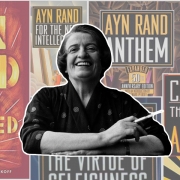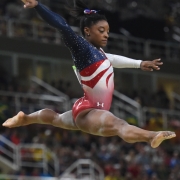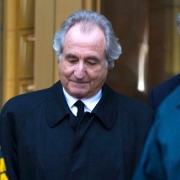Daytime drama became a phenomenon in late 1950’s America, and like a novel, it allowed for longer dialogue to develop dramatic story lines and romantic relationships. Not only is We the Living a great title for a soap opera, the novel is loaded with drama and romance. For example, in Chapters 4 – 6, our We the Living Study Group was introduced to the love triangle between Kira, Leo, and Andrei.
Like viewing a new soap episode, it helps to know Kira’s attributes and context. With her family back in Petrograd and visiting cousins in Chapter 2, Kira was asked about fresh fruit in Crimea, “I never notice what I eat.” When told she should wear longer skirts, Kira answered “If one has the material. I never notice what I wear.”
In these instances, she reveals her indifference to what she can’t control. When the conversation changes to new, Soviet system career choices, Kira avers, “I think the discussion is superfluous. I am going to the Technological Institute.”
To her family, this is not an appropriate choice for a young female, and her older sister Lydia demands, “When did you decide that?” Kira answers, “About eight years ago. I’ll be an engineer. I’m going to build because I want to build.” Then Chapter 4 transitions from Kira’s childhood to her young adulthood,
During the lectures, she smiled suddenly, at no one in particular; smiled at a wordless thought of her own. Her childhood had been a cold shower, gay, hard and invigorating. Now she was entering her morning, with her work before her, with so much to be done.
This is how people think if they are truly alive. Conversely, her cousin Victor declares, “A modern man of culture must preserve an objective viewpoint which, no matter his personal convictions, enables him to see our time as a moment of gigantic importance to humanity.” Kira replies, “Nonsense. It is an old and ugly fact that the masses exist and make their existence felt. This is a time when they make it felt with particular ugliness. That’s all.”
Kira’s focus is on what she can control, especially her ambitions, for the singular reason that she wants it. She has no interest in those who want little more than to avoid death. As the master of her future, and being an idealistic 18 year old girl, her attention is also drawn to young men who have not surrendered to their circumstances, whatever that may mean. The first one we are introduced to is Leo,
He was tall, a cap was pulled over his eyes. His mouth, calm, severe, contemptuous, was that of an ancient chieftain who could order men to die, and his eyes were such as could watch it. Kira leaned against a lamp post, looking straight at his face, and smiled.
Chapter 5 further reveals Kira’s naivete during her first encounter with Andrei Taganov, the young Soviet enforcer who overhears her saying, “When the traces of their republic are disinfected from history – what a glorious funeral march this will make.” Later, her Uncle Vasili asks, “How about it Kira? Do you think you’ll live your whole life under a Red Boot?” Kira replies, “No, it can’t last forever.” In the benevolent universe of reason, reality ultimately prevails.
Still unaware of each other’s names, Kira and Andrei’s second meeting at the Institute triggers Kira’s sense of danger,
He stopped and turned, waiting for her. The sidewalk sloped at a steep, frozen angle. Her feet slipped perilously. His strong hand closed over her arm with a smile, “I suppose you weren’t afraid.” She said, “On the contrary I was very much afraid – this time.”
Lurking at the Facebook forum, Doctor J trolls Andrei, “He’s a hopeless twit. But his character is just developing!” Chapter 6 proves this when Kira tells him, “I thought that Communists never believed in doing anything but what they had to do.” Andrei replies, “I must be a very poor Communist, I’ve always done only what I wanted to do.” She then asks, “Your revolutionary duty?” Andrei takes the bait,
There is no such thing as duty. If you know that a thing is right you want to do it. If you don’t want to do it – it isn’t right. If it’s right and you don’t want to do it – you don’t know what right is and you’re not a man.
Also using a bogus public service dialectic, presidential nominee Joe Biden justifies his vice president running mate selection,
I need someone who understands we are in a battle for the soul of this nation. To get through these crises, we need to unite for a better America. Kamala Harris gets that. A fearless fighter for the little guy, and one of the country’s finest public servants.
What the confused Andrei Taganov and life-long dimwit Joe Biden have done is invoke the 19th century moral philosophy of Immanuel Kant – duty as an end in itself. Directly opposed is America’s moral premise – our lives, liberty, and happiness are an end in themselves. Biden’s supporters are ignorant of the fact there are no little guys in America’s founding principles – the soul of this nation is distributed equally among each individual. Avoiding reality and chaos define the Democratic party’s malevolent universe death premise.
Coming of age during the economic and political chaos of a middle class under assault, Gen Z and Kira hold dearly to their life premise of productive happiness.
Andrei continues, “You’re going to say that you admire our ideals, but loathe our methods.” Kira stands firm, “I loathe your ideals. You will turn your paradise into the most unspeakable hell: your claim that man must live for the state.”
Doctor J offers to our online forum: Although young, Kira instinctively understood it would not be of any advantage to sell her soul and blindly obey people. Duty is accountable to no one. We are told we will be better for it while it actually can kill us on so many levels.”
To be continued . . . .
Leo wonders, Who suffers in this world? If only one could come down to the level of those who never want it, never miss it.”
Andrei dreams, “To bring the millions up to where I want them – for my sake.”
Kira insists, “Haven’t you ever wanted a thing for no reason save one: that you wanted it?”













